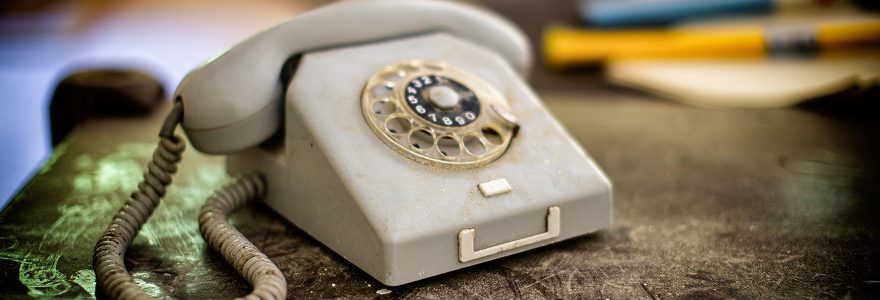
Do telephone area codes still matter?
Before the 1980s, the phrase STD had a far more innocent primary definition.
The Subscriber Trunk Dialling system enabled people to place and receive phone calls without needing a switchboard operator to connect them.
Different regions were allocated dedicated telephone area codes, also known as STD codes. This gave local areas a distinct identity, and abbreviated dialling nearby people or businesses.
London’s status as the nation’s capital was underlined by its 01 code (subsequently expanded to 071 and 081, before these were in turn replaced by 0207 and 0208 numbers).
And apart from the odd anomaly like ten-digit numbers in the Scottish Borders, the vast majority of UK telephone numbers are 11 digits, including telephone area codes.
Or at least they used to be…
Anomalies and annoyances
Introduced to the UK in the 1950s, STD codes made sense in an age when landlines provided the only method of telecommunications.
If you lived in Birmingham, you didn’t need to prefix calls to nearby friends or businesses with 021. Only people whose numbers started in different codes had to add an area code.
Codes were allocated according to the corresponding letters on the ABC1 DEF2 system used by dial phones and early numeric-keypad mobile phones.
Middlesbrough’s area code starts 64 – 6 being the number corresponding to M (plus N and O), while 4 corresponds to I (as well as G and H).
A common local area code provided a sense of shared community, which is why many businesses are still unlikely to list area codes on signage outside their premises.
Taxi companies are a classic example. Even though they travel around the country, they tend to be identified only by their local number rather than their full 11-digit version.
However, some towns and villages found themselves surrounded by a variety of different telephone area codes – a frustration which has persisted to the present day.
Residents of Uddingston in Lanarkshire are allocated an 01698 area code. Yet within a ten-minute drive, there are homes and businesses with 0141, 01236, 01355 and 01357 codes.
Recent technologies have also complicated the picture. Uddingston residents with Sky landlines typically receive six-digit numbers starting in 91.
Yet non-Sky customers have to add the 01698 area code to successfully dial these numbers, even if they themselves are calling from a number starting in 01698.
In areas like Bradford and Brighton, it’s now necessary to use the STD code when dialling any local number, due to capacity constraints.
Worse, the introduction of mobile phones has made it impossible to tell where a particular number is calling from, or even where its registered owner is based.
In adverts for used goods or vehicles, where once an area code would have identified the item’s location, most advertisers now use mobiles and need to add their location separately.
Should we abolish area codes?
Ofcom has been consulting on the abolition of area codes since 2019, as the use of landlines dwindles in an age of mobile communications.
It launched a new consultation at the end of April, proposing to remove the need for local dialling facilities.
Even our smartphones are rarely used to make calls, compared to the amount of time they spend distributing encrypted messaging and social media conversations.
Some ISPs are now rolling out unbundled services, offering broadband without needing a landline.
Known as Single Order Generic Ethernet Access (or SOGEA), these broadband-only subscriptions were created in response to widespread public indifference towards landlines.
Historic identifications have already been diluted by the need to adopt 02 numbers alongside 01, removing Belfast’s iconic 01232 code among others (2 for B and 3 for E on a dialpad).
Now there’s the growing adoption of VoIP services like Skype, where callers can be based anywhere in the world and people are contacted by their username, not by a number.
Indeed, the death of landlines has been predicted many times, and underground full fibre broadband is slowly diminishing demand for traditional copper telephone lines.
As such, it’s probably only traditionalists who will mourn the loss of geographic area codes if they’re eventually abolished.

